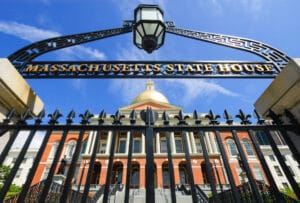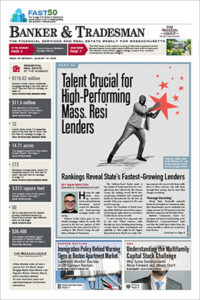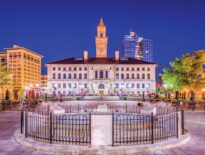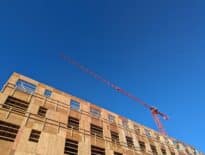The state House of Representatives on Monday approved the city of Boston’s request to temporarily reconfigure the way it splits property taxes between commercial and residential taxpayers.
Norwell Rep. David DeCoste slowed the bill’s advancement on Thursday and Friday but was not in the House chamber when Democrats put the bill up for a vote at the immediate outset of their 11 a.m. session and moved the legislation on to the Senate.
The Senate met briefly Monday but adjourned until Wednesday without acting on the bill, which reflects compromise language reached in October between Boston Mayor Michelle Wu and leaders of the Greater Boston Chamber of Commerce and commercial developers trade group NAIOP-Massachusetts, plus business-backed think tanks the Massachusetts Taxpayers Foundation and the Boston Municipal Research Bureau.
Wu has pushed for the bill’s passage to mitigate the extent of coming increases in residential property taxes, while critics of the legislation say the city should pull back on its spending increases and be more mindful of potentially lasting commercial real estate struggles. The bill must pass before December, Wu told legislators last week, or else residents Jan. 1, 2025 tax bills would not reflect it.
The deal will see Boston commercial tax rates rise slightly, but not as much nor for as long as Wu had originally sought. The city will also spend several million dollars to help small retailers facing higher rent payments under triple-net leases that pass property tax costs on to tenants.
However, not all business groups have gotten behind the deal, with the Small Property Owners Association launching fierce broadsides against it and the Greater Boston Real Estate Board staying notably silent.
DeCoste, a Republican, told reporters Thursday that “what they’re talking about specifically will cripple real estate, and will cripple the local economy,” saying he was responding to advocacy from business leaders in his district and the South Shore Chamber of Commerce who feared that lower Boston commercial property values could harm the state’s finances and economy.
The state Republican Party on Thursday praised DeCoste’s parliamentary move as a “call to action for fiscal responsibility” and slammed Wu’s proposal as a “push to fund an ever-growing, bloated budget that has expanded annually since she took office.”
Democrats were able to advance the bill during an informal session where there’s no quorum and any legislator can stall a bill’s progress.
House Republican Leader Bradley Jones Jr. was briefly in the chamber during Monday’s session, which also featured Republican Reps. Steven Howitt and Donald Wong and Democrat Boston Reps. William MacGregor, Rob Consalvo, Jay Livingstone, and Dan Ryan.
Material from prior State House News Service reports was used in this story.







